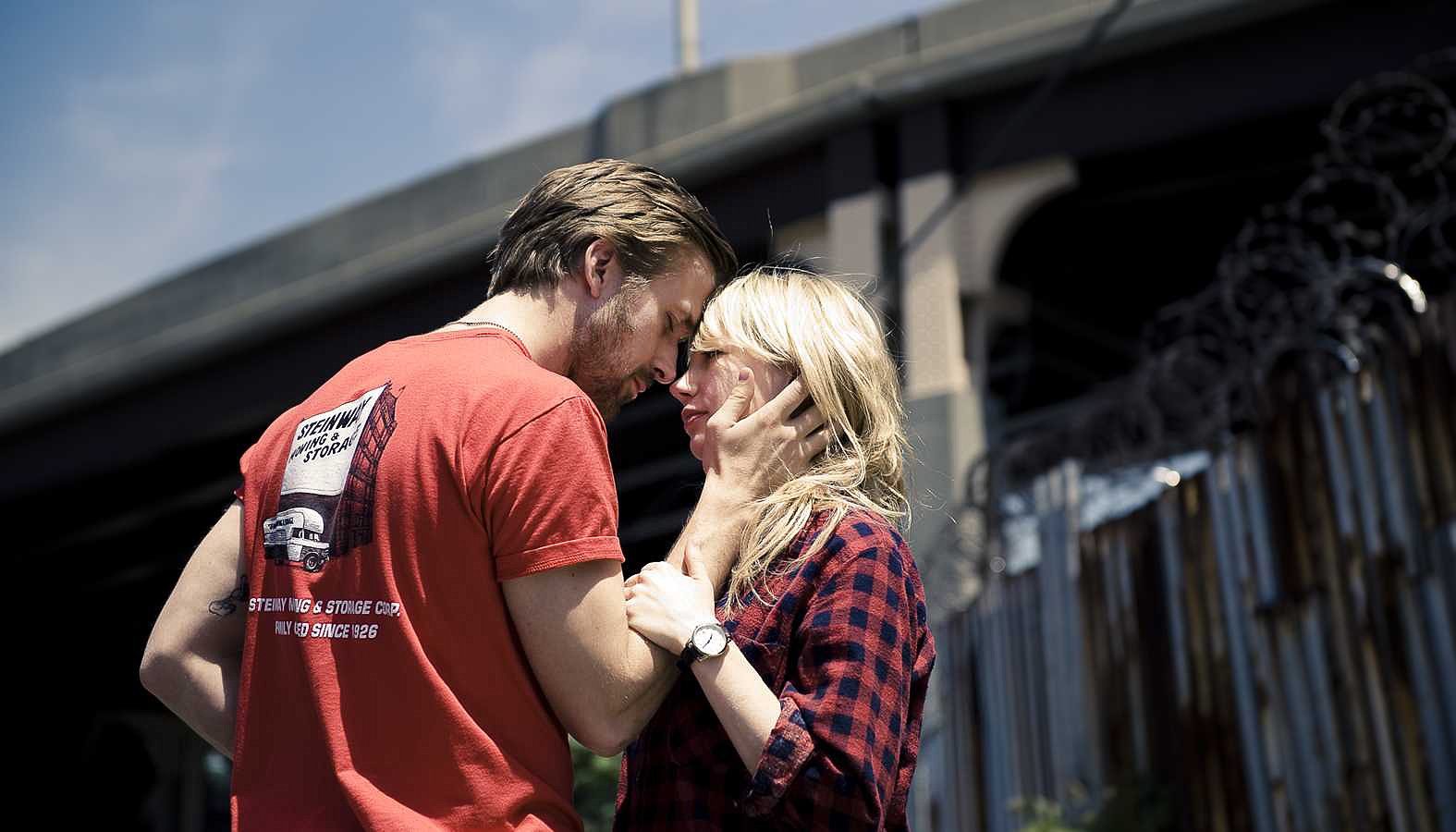“Blue Valentine”
Directed by Derek Cianfrance
The Weinstein Company
5 paws
The average romantic film has scarred the American psyche so badly that we expect all movies about love to end with a fantasy of a kiss and a ring, with sequels of children and happiness. All of these things are featured in the indie flick “Blue Valentine,” but with a lot less happiness and a higher dosage of reality.
True to a romantic narrative, “Blue Valentine” centers on Cindy and Dean, played by Michelle Williams and Ryan Gosling, and their flirtations and affections for one another. However, rather than ending on their youthful dalliance, the end features more marital shouting and pleas for divorces.
The film starts with their settled life in the domestic sphere, with Dean content with the slow-moving nature of his life and his beer belly. On the other end of the relationship, Cindy is motivated with her rising job as a nurse and discontent with Dean’s mediocrity. It becomes obvious that Dean is more invested in the marriage than Cindy, which manifests itself in petty arguments and sloppy efforts at reconciliation.
In a contrast to the current day, flashbacks to their blossoming love affair in the past showcase the thrill of their romance. In one scene, Dean woos Cindy with all his rugged hipster finesse and a banjo solo that showcases Gosling’s musical flair (after all, Gosling was once in the Mickey Mouse Club). With the lackadaisical giddiness of youth on their side, Dean and Cindy are the epitome of living in the moment. This eventually proves to be a fallacy as a surprise pregnancy pops up, complicating the dynamic between the two.
The nuances of the imbalance in the relationship are evident from the beginning, as Dean sacrifices more for Cindy than she is willing to give. What ensues is a quickie marriage between the two, the haste of which seems to be a harbinger of the couple’s demise, and a very sad sex scene in a tacky, future themed motel.
And the sex in the movie did not warrant the previous “NC-17″ rating that the film carried, which has rightfully been overturned to a “R” rating.
While gore runs rampant in other films that earn “R” ratings, such as the “Saw” series or “Piranha 3-D,” the sexuality in the film showcases more of the emotional aspects of lovemaking, as well as its drunkenly depressing moments of dejection and blacking-out.
Adhering to its title, the movie is blue to the point that much of the film slaps you in the face with its realistic depiction of love’s follies. Both Gosling and Williams give such brutally realistic portrayals of sad sacks in and out of love that perhaps it may have been the reasoning behind its previous “NC-17″ rating. Both actors are reflective of their state in the relationship as they begin their affair as clean-cut attractive 20-somethings, a contrast to their impending pudginess and relinquishment to age and careless dress in their domestic life.
Despite the utter melancholy of the film, writer and director Derek Cianfrance expertly weaves intervals of lovey-dovey moments into the grittiness of the marriage for the optimistic at heart. It is the realistic depiction of the deteriorative relationship that gives the film its moments of unadulterated sweetness and likewise, its parallel moments of turbulent marital disquietude.
